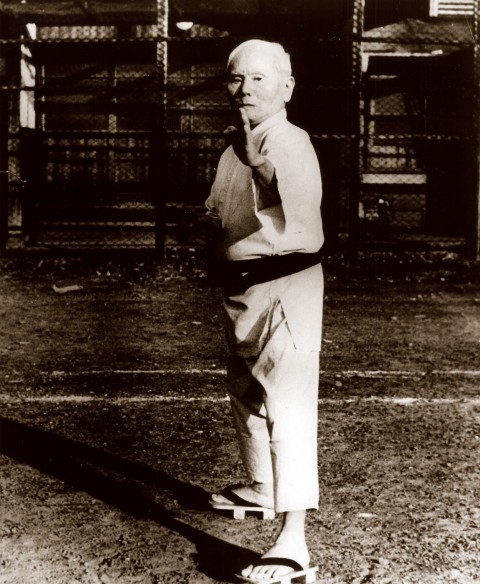The “dojo kun” outlines the most important precepts in Shotokan Karate, one of the world’s most practiced martial arts. Written by Shotokan founder Gichin Funakoshi, it is literally a list of rules for the practitioner, providing guidance and suggestions for how we can be the best version of ourselves and live a happier life. If we “break” those rules there is no punishment by law, but there is suffering. And we are the ones who suffer the most. Below is an outline of the five key philosophies of this deep martial arts practice.
Seek Perfection of Character
This line speaks to the essential principle of “kaizen” – we are always trying to improve. How we treat other people – and ourselves – is crucial for a life well-lived, and an area we can always work on. There is no “real” perfection here: it is more like something being whole, complete. And there is always room for being better, kinder, more loving, as we approach that sense of being whole.
Be Faithful
Faith means belief: believing in yourself, the Martial Arts and your teacher. We learn what we need to learn when we need to learn it. In the dojo, everything happens step by step. This is how we learn. We reach the top of the mountain only to see that there is another peak before us. What we’ve scaled is just one height of many. The only way to move in this way is with faith. To believe that our teacher is on our side and will help us through obstacles in training as well as in life. To believe that every obstacle in our way is only asking us to grow stronger, so that once we are through we’ll be more prepared for whatever comes next. To believe that by continuing to move forward, through consistent training, there will be improvement. Kaizen.
Endeavor
This means trying something new, the willingness to but aside our misgivings and fears. Not to grow stagnant in life or in training. To take risks. Work hard. Find our passion. Create possibilities. Have fun. Love. Be vulnerable. To step ourside your confort zone to truly experience what makes you, you.
Respect Others
Without respect for others, there is no chance at a complete life. If we close ourselves off to other ideas, we miss out on opportunities for improvement, togetherness, happiness. Violating this principle creates chaos: disrespect leads to arguments; arguments with no respect turn into resentment; resentments turn into war, individually and globally. Respecting others doesn’t mean always agreeing with them. In any relationship there will always be something we disagree with, but with mutual respect and understanding, solutions can be found or a new path can be laid out.
Refrain from Violent Behavior
This means verbally as well as physically. As in the previous precept, we have to be responsible for our part in our relationship with other people. Speak well of others, and with others. It is our work as Martial Artists to build people up and not put them down, to let them discover their own potential. People don’t remember what we say, but they remember how they feel when they’re around us. When we’re responsible in this way, we create the space they need for their own work. Of course, there is no room for physical violence either. Misunderstandings can be solved by talking to each other with mutual respect, by listening and being open. To learn to put aside ego and personal preferences is the way of the karateka: to begin to lessen the suffering in ourselves and in the world, we can begin with this one precept.
Every martial arts practice has its rules and outlines. These are time-tested and accessible, a guide not only for the karate practitioner but good counsel to every student who sets foot into the dojo anywhere.

Sonja Hofstetter
Instructor, Curatorial Research Manger and Archive Administrator
Brooklyn Brazilian Jiu-Jitsu





